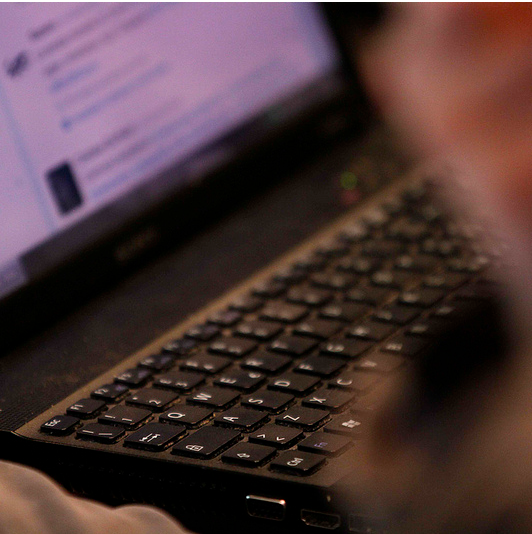by Claudio Agosti – translated by Roberta Aiello
Digital whistleblowing is a tool which, by guaranteeing protection from electronic surveillance, enables a source to partake in confidential communication (with a journalist, in our case).

(photo by Martina Zaninelli)
Anyone who has seen CitizenFour, or knows the story of Greenwald, remembers that the journalist was about to lose contact with the most important source of the story because he met a barrier at entry. A technological barrier (the installation of an encrypted communication software) that would have precluded the initial contact with his future source, best known as the whistleblower Snowden.
Five years ago, at the International Journalism Festival in Perugia, GlobaLeaks was presented, a framework that allows the creation of digital safe places for interaction among journalists and sources.
After five years, the project has been funded by two foundations and used all over the world. It covers journalistic needs, political activism and, in partnership with Transparency International, also the fight against corruption. Whistleblowing has existed for many years, but its digital variant has only now become available to everyone.
At #ijf15, the number of talks and workshops on this topic is representative of the interest that it generates.
This year, as an evolution of the Hackers’ Corner, the Hermes Center will provide special training sessions for journalists who want to be enabled to receive material from sources, guaranteeing them a high level of security.
Workshops for journalists (on Thursday and Saturday)
On Thursday, from 11:30 to 13:00 Greenwald-in-a-Box (a Hermes experiment) and on Saturday from 18:00 to 19:30 the English version of the same workshop.
In an hour and a half of training, journalists will see a configured secure digital area, shown on the anonymous network Tor and reachable from their blog (or their published articles) so that the sources can start communication and send files.
This is also the answer to those who have experienced receiving confidential material and felt (rightly) skeptical about using email (which is a rather insecure mechanism if PGP is not used).
The workshop will test a safe service (here is a list of those who already use it) which protects communication from interception and any data theft that may occur. Then, it is up to you to indicate the link on your blog or in other ways in order to allow already known or new sources to get in touch with you easily. The technology ensures the anonymity of the source, the inability for anyone but you to access data, and the possibility for the source to continue the dialogue at a later time.
Considering the legal and security implications as well, we have planned to support these workshops with talks related to the issue. On Thursday at 10:30, Alessandro Rodolfi, in collaboration with the Chairs of Legal Informatics and Advanced Legal Informatics at the Faculty of Law, University of Milan, will address the legal status of the protection of whistleblowers and reporters. On Saturday, before the workshop, Jillian York of the EFF will explain the different threat models and the various safety assessments that should be adopted (threat model), because the security of a system is like medicine; a universal one does not exist.
Workshops for newsrooms, on Saturday morning
On Saturday from 10:30 to 12:00, the journalistic association IRPI (Investigative Reporting Project Italy), together with OCCRP (Organized and Corruption Crime Reporting Project) and ANCIR (African Network of Centers for Investigative Reporting) will compare their experiences in the collection of anonymous material, used as an investigative guide for journalism. Afterwards, until 13:30, there will be a workshop for publishing organizations. If any newsroom wants to adopt whistleblowing systems (aimed at a hot topic, as has happened for ExpoLeaks), they can contact us by sending an email to projects@logioshermes.org mentioning the proposal, otherwise we will proceed by explaining what the processes are of marketing, analysis, safety and legality needed to include anonymous whistleblowing among the resources of a news organisation.
Talks and panel discussions
On Saturday afternoon, Giovanni Ziccardi, professor of Legal Informatics at the University of Milan, will analyze the phenomenon of the secrets and perception of confidentiality, with technical-legal reflections on current trends.
On Sunday morning, Philip di Salvo (journalist and member of the European Journalism Observatory), Fabio Pietrosanti (technologist and expert of whistleblowing and president of Hermes Center) with Davide Del Monte (director of Transparency International) will explain the experiences made in recent years on journalistic whistleblowing and purposes to combat corruption.
We believe that an event such as IJF, full of journalists who want to understand the novelties that digital offers in the management of high-octane news stories, is the right place to teach, explain and disseminate these tools.
For this reason, we ask for a minimum of courage and curiosity, because the adoption of these tools is part of a general change that will bring more transparency and resources to the journalism of the future.


